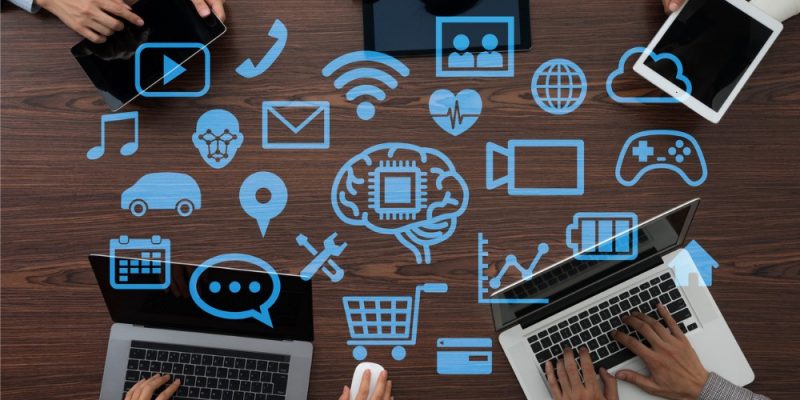From smartphones to artificial intelligence, technology has enabled us to do things that were once thought impossible. In this blog post, we will explore the positive impact of technology on business and society.
Increased Efficiency and Productivity in Business
One of the most significant benefits of technology in business is the increase in efficiency and productivity. Advancements in automation, machine learning, and artificial intelligence have enabled businesses to streamline their operations, reduce errors, and save time and money.
For instance, businesses can use software to automate routine tasks, such as data entry, accounting, and customer service. This reduces the need for human intervention and frees up employees to focus on more complex and strategic tasks.
Furthermore, artificial intelligence can help businesses make better decisions by analyzing data of impact of technology on our health and identifying patterns that humans might miss.
Improved Communication and Collaboration
Technology has also transformed the way businesses communicate and collaborate.
With the rise of the internet, cloud computing, and mobile devices, employees can work together from anywhere in the world.
For instance, video conferencing tools like Zoom and Skype have made it easy for remote teams to communicate in real-time. Collaborative software like Slack and Trello have made it easier for teams to share files, assign tasks, and track progress.
This has not only increased efficiency but also improved work-life balance for employees. Remote work has allowed people to work from home, reduce commuting time, and achieve a better work-life balance.
Better Healthcare and Medical Research
Technology has also had a significant impact on healthcare and medical research. Advancements in medical technology, such as electronic health records, telemedicine, and robotic surgery, have improved patient outcomes, reduced healthcare costs, and increased access to care.
For instance, telemedicine has made it possible for patients in remote areas to receive medical care without traveling long distances.
Electronic health records have made it easier for healthcare providers to access patient information and provide coordinated care. Robotic surgery has enabled surgeons to perform complex procedures with greater precision and less invasiveness.
In addition, technology has also accelerated medical research by enabling scientists to analyze vast amounts of data and conduct simulations. This has led to new discoveries and breakthroughs in areas such as genomics, personalized medicine, and drug development.
Environmental Sustainability
Technology has also played a vital role in promoting environmental sustainability. Advancements in renewable energy, smart grids, and energy-efficient technologies have helped reduce greenhouse gas emissions, conserve natural resources, and promote sustainable development.
For instance, solar and wind power have become increasingly cost-effective, making it easier for businesses and households to switch to renewable energy sources.
Smart grids have enabled more efficient energy distribution and reduced waste. Energy-efficient technologies, such as LED lighting and smart thermostats, have helped reduce energy consumption and costs.
Moreover, technology has also enabled greater awareness and activism around environmental issues. Social media has made it easier for people to share information, connect with like-minded individuals, and organize environmental campaigns.
Improved Education and Learning
From e-learning platforms to interactive educational software, technology has made it easier for people to access education and training opportunities.
For instance, e-learning platforms like Coursera, Udemy, and Khan Academy have made it possible for people to learn new skills and acquire knowledge from anywhere in the world.
Interactive educational software has made learning more engaging and interactive, enabling students to learn at their own pace and in their own style.
In addition, technology has also helped bridge the digital divide and promote greater educational equity. With the rise of low-cost devices and internet access, students from disadvantaged backgrounds can access educational resources and opportunities that were once out of reach.
Conclusion
Technology has had a profound and positive impact on both business and society. From increased efficiency and productivity in business to improved healthcare, education, and environmental sustainability, technology has enabled us to achieve things that were once thought impossible.
There are also challenges and risks associated with technology, such as job displacement, privacy concerns, and ethical dilemmas.
Therefore, it is essential to use technology responsibly, ethically, and with caution. We need to ensure that the benefits of technology are distributed equitably and that no one is left behind.
Furthermore, we need to address the challenges and risks associated with technology, such as job displacement and cybersecurity threats, through collaboration, innovation, and regulation.
Read More: How Health is Changing Because of the Impact of Technology












Comments